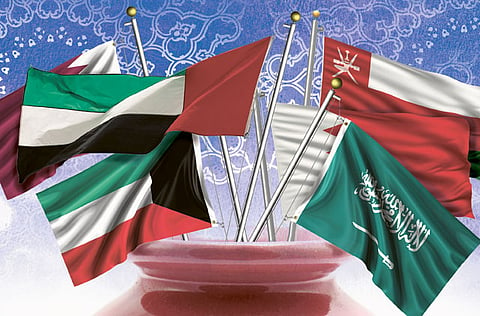GCC condemns Israeli aggression on Iran, warns against escalation
Council activates the Emergency Management Centre to take necessary precautionary measures

Dubai: The Gulf Cooperation Council (GCC) has strongly condemned the Israeli aggression against Iran and called on all parties to exercise maximum restraint, halt the escalation and avoid a dangerous slide into a wider regional conflict.
In a statement issued following the 48th extraordinary meeting of the GCC Ministerial Council, held via video conference on Monday, GCC Secretary-General Jassim Al Budaiwi underscored the urgent need for de-escalation.
The meeting was chaired by Kuwait’s Minister of Foreign Affairs, Abdullah Al Yahya, in his capacity as chairman of the current session, and attended by the foreign ministers of the six GCC member states.
Al Budaiwi said: “The region is experiencing an extremely dangerous and unprecedented escalation due to recent attacks by Israeli occupation forces on Iran and Iran’s subsequent response.”
He warned that the heightened tensions across the region and opened the door to disturbing scenarios, undermining the prospects for political solutions and threatening the collapse of dialogue and diplomatic efforts.
The GCC Secretary General underscored that the GCC remains committed to defusing tensions, supporting dialogue, and preventing the outbreak of any conflict that could jeopardise the stability of the Gulf and the wider international community.
The council reiterated its grave concern about the consequences of further escalation, stressing that a wider conflict would lead to unpredictable and uncontrollable outcomes.
Broader implications
The ministers reviewed the possible repercussions and challenges facing GCC states due to these rapid developments, particularly the potential impact on nuclear facilities, regional environmental safety, and critical infrastructure.
Concerns were also raised about the broader implications of the conflict on the global economy, including potential disruptions to supply chains, trade routes, energy markets, and the security of vital international waterways.
In response to the mounting risks, the Council decided to activate the GCC Emergency Management Centre to take all necessary precautionary measures. This includes close monitoring of environmental and radiological indicators and ensuring technical readiness to address any emerging threat.
The activation aligns with the directives of the GCC Supreme Council to strengthen emergency preparedness, particularly in the face of possible environmental fallout from attacks targeting nuclear sites.
Al Budaiwi reassured the public that, so far, all technical indicators remain within safe limits and there is no immediate cause for concern. However, he affirmed that a state of full alert remains in place to ensure the highest level of preparedness, in coordination with relevant national authorities and early warning systems across member states.
Sign up for the Daily Briefing
Get the latest news and updates straight to your inbox



